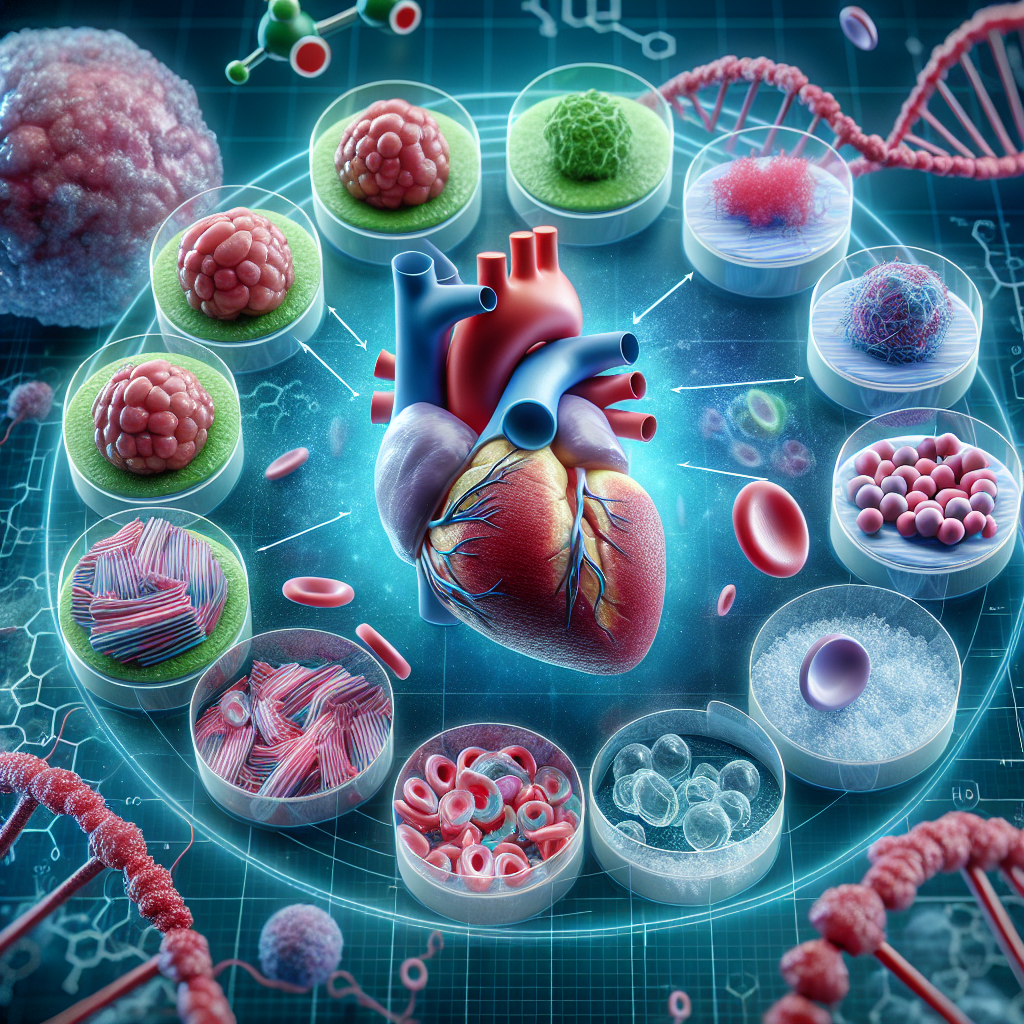Congenital heart disease (CHD) is the most common type of birth defect, affecting the structure and function of a newborn’s heart. It presents not only a medical challenge but also an emotional and financial burden for families. However, recent advances in genetic research have begun to illuminate the complex interplay between genetics and heart development, providing hope for more effective treatments and preventative strategies.
The Genetic Puzzle of Congenital Heart Disease
The heart is the first functional organ to develop in the fetus, and this process is tightly regulated by a network of genes. Disruptions in this genetic network can lead to congenital heart defects. Scientists have identified some genetic mutations that contribute to CHD, but the full genetic landscape is still being uncovered.
Research has shown that both inherited genetic factors and new mutations can play a role in CHD. Recent studies utilizing next-generation sequencing technologies have allowed for the identification of novel CHD-associated genes at an unprecedented rate. These discoveries are crucial for understanding the etiology of CHD and open up new avenues for treatment.
For a comprehensive understanding of how genetics affect overall health, visit Avix Health’s section on Cardiovascular Health.
Translating Genetic Discoveries into Treatment
The translation of genetic findings into clinical practice involves several steps, from understanding the functional impact of mutations to developing targeted therapies. One promising area is gene therapy, where corrective genes are introduced into the patient’s cells. Another approach is the use of precision medicine, which tailors treatment based on an individual’s genetic makeup.
The Role of Genetic Counseling
With the growing importance of genetics in CHD, genetic counseling has become an integral part of patient care. It helps families understand the risk of CHD recurrence in future pregnancies and discusses the implications of genetic testing. For more on this, explore the role of genetic counseling in heart disease prevention.
The Future of CHD Treatment: Stem Cells and Regenerative Medicine
Stem cell research and regenerative medicine are at the forefront of potential CHD treatments. Scientists are exploring how stem cells can be used to repair or replace damaged heart tissue. This research is still in its infancy, but the potential for curing severe CHD is a driving force behind many current studies.
Preventative Strategies and Early Intervention
Understanding the genetic causes of CHD also opens the door to preventative strategies. For families with a history of CHD, early genetic screening can identify at-risk individuals, enabling early intervention and management. Lifestyle factors, such as diet and exercise, also play a role in mitigating the risk of CHD. For more information on the impact of lifestyle on heart health, read about the benefits of regular blood donation on heart health.
Challenges and Ethical Considerations
The rapid pace of genetic research in CHD raises several ethical issues. These include concerns about genetic privacy, potential discrimination based on genetic information, and the psychological impact of genetic diagnoses. It is crucial to address these challenges to ensure that advances in genetic research benefit all segments of society.
Looking Ahead
The future of CHD treatment is bright, with ongoing research pushing the boundaries of what is possible. As our understanding of the genetic underpinnings of CHD grows, so too does our ability to develop innovative treatments that could one day cure or even prevent this condition.
For those interested in understanding the broader implications of heart health research, consider reading about the potential of anti-inflammatory medications in combating heart disease.
In conclusion, the advances in genetic research for CHD treatment represent a beacon of hope for millions affected by this condition. By integrating genetic insights with clinical care, we move closer to a world where CHD can be effectively treated or even prevented, ensuring healthier hearts for future generations.
Additional Resources
- A detailed review on the genetic basis of congenital heart disease published in a peer-reviewed cardiology journal. Link to resource
- An overview of the latest gene therapy techniques and their potential applications in treating genetic disorders, including CHD. Link to resource
- Information on the ethical considerations and policy discussions surrounding genetic testing and privacy. Link to resource
- A resource for families and individuals dealing with congenital heart disease, offering support and information on the latest treatments. Link to resource
- An article discussing the role of stem cells in regenerative medicine and the future of repairing congenital heart defects. Link to resource



